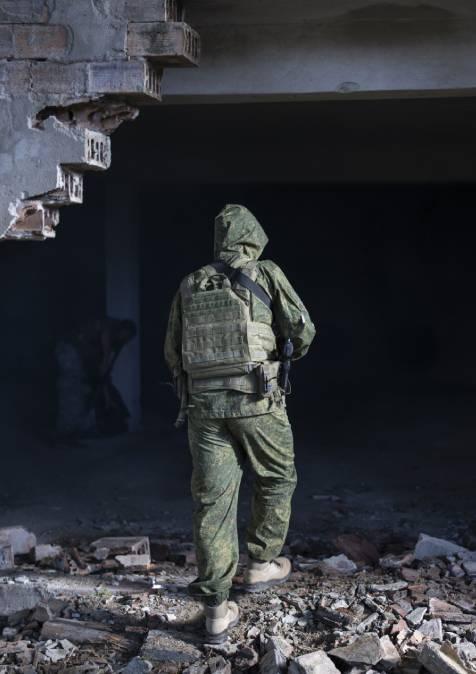John Sawers, former Chief of the Secret Intelligence Service (MI6), shares his insights on how security threats have evolved with the rise of digital technologies and social media. In this interview, he offers a compelling exploration of the shift from traditional methods to contemporary security challenges. Sawers examines how intelligence approaches have adapted to address new threats, including the influence of social media on democratic processes and the evolving global geopolitical landscape. The discussion provides An insightful analysis of the current dynamics in intelligence work and highlights the critical issues facing intelligence services in an increasingly interconnected and digital world.
RELATED CONTENT
-
Abdessalam Saad Jaldi & Thomas GomartFebruary 03, 2023Les dirigeants de l’Union européenne et de l’Union africaine ont posé lors du 6ème sommet UE-Afrique qui avait eu lieu à Bruxelles en février 2022 les jalons d’une relation renouvelée, ba ...
-
 AuthorsJanuary 30, 2023In early January 2023, a man was detained near the Russian-Norwegian border at 1.58 a.m. local time. The night was frost-bite cold and the man, a Russian citizen, had run across the frozen Pasvik River, at a place where it was a few hundred meters wide. He’d jumped some barbed-wired fences, which demarcated the border. The Russian avoided official checkpoints because he was a fugitive, and dogs were following him through the polar night, barking, menacing. Their masters aimed at the ...
AuthorsJanuary 30, 2023In early January 2023, a man was detained near the Russian-Norwegian border at 1.58 a.m. local time. The night was frost-bite cold and the man, a Russian citizen, had run across the frozen Pasvik River, at a place where it was a few hundred meters wide. He’d jumped some barbed-wired fences, which demarcated the border. The Russian avoided official checkpoints because he was a fugitive, and dogs were following him through the polar night, barking, menacing. Their masters aimed at the ... -
Imane Lahrich & Youssef TobiJanuary 20, 2023Within the realm of military conflicts, the Atlantic Basin can be considered a relatively peaceful area, especially in the northern part. However, the region has faced unprecedented chall ...
-
 AuthorsChristian BachheimerSerhat S. ÇubukçuoğluAmine GhoulidiRahul SharmaKevin VerbelenJanuary 17, 2023This publication provides an insight into the lens through which countries of the Global South view the current period of successive crises, brought about by an ongoing global pandemic and a war in Europe. It highlights how the combined weight of history, culture, and geography has shaped the Global South’s interests and is influencing its foreign policy stance during one of the most dangerous periods of Great-Power competition in recent times—one that could see the fracturing of th ...
AuthorsChristian BachheimerSerhat S. ÇubukçuoğluAmine GhoulidiRahul SharmaKevin VerbelenJanuary 17, 2023This publication provides an insight into the lens through which countries of the Global South view the current period of successive crises, brought about by an ongoing global pandemic and a war in Europe. It highlights how the combined weight of history, culture, and geography has shaped the Global South’s interests and is influencing its foreign policy stance during one of the most dangerous periods of Great-Power competition in recent times—one that could see the fracturing of th ... -
AuthorsClément ThermeDecember 23, 2022La présence iranienne en Afrique est une question à la fois idéologique, économique et sécuritaire. La politique africaine de l’Iran a connu un nouvel élan avec la Révolution de 1979. Dans le cas de la politique africaine, on peut qualifier ce tiers-mondisme militant d’arrogant. Eneffet, dans l’imaginaire des élites politiques révolutionnaires khomeynistes, les relations avec les pays du Sud global sont à comprendre non seulement dans le cadre d’un anti-impérialisme de fa ...
-
December 16, 2022In this video recorded during the Atlantic Dialogues, our Columnist Mr. Helmut Sorge interviews Ms. Ana Palacio, Spain's Former Minister of Foreign Affairs on the position of Spain and Europe towards the War in Ukraine, the interview also tackles different questions regarding Energy, se...
-
December 16, 2022In this video recorded during the Atlantic Dialogues, our Columnist Mr. Helmut Sorge interviews Mr. Alessandro Minuto-Rizzo, President of the NATO Defense College Foundation in Rome on the NATO’s reactions amidst the War in Ukraine, Mr Minuto answers questions on how countries of the Na...
-
December 16, 2022In this video recorded during the Atlantic Dialogues, our Columnist Mr. Helmut Sorge interviews Ms. Nusrat Farooq, Technology and Programs Associate, Global Internet Forum to Counterterrorism, Ms. Farooq tells us about how The Global Internet Forum is fighting violent extremism and terr...
-
AuthorsDecember 9, 2022The global wave of democratic retrenchment has not spared North Africa as seen in the cases of Tunisia and Sudan, where democratic transitions have stalled or regressed into autocracy. How do to explain Tunisia and Sudan’s troubled transitions from authoritarian rule? Both states are attempting to transition from single-party authoritarianism. In both cases, economic crises exacerbated by COVID, the Russian-Ukraine war, and involvement by external actors stymied the fragile transiti ...
-
Youssef Tobi & Rida LyammouriNovember 25, 2022Communities in northern Côte d’Ivoire report an ongoing pattern of questioning, ethnically- motivated arrests, and abuse, in contrast to the good relationships with local forces and poli ...





